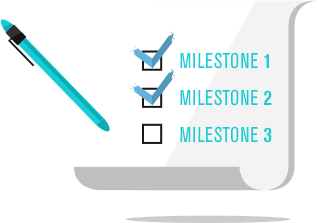The first thing to know is that the term 'Orientation' doesn't just refer to the traditional Week 0 event. It's important to think about a students' orientation as a process that takes place over a number of weeks and not just as a moment in time.
What is Orientation? How does it fit into initiatives run by schools?
Orientation assists first year students with information about their program, their campus and the services offered by Western Sydney University. Attending Orientation ensures that students are ready to start their classes and know what to expect when studying at university.
When does Orientation take place?
Orientation program sessions and activities are usually held on campus two weeks before Autumn, Spring and Summer sessions start.
What support do we offer students before commencing study?
There's plenty of support available from when students get their offer of study, throughout Orientation week, and beyond, including:
Preparation workshops:
A great way for students to brush up on academic skills. Find out more about academic preparation programs.
Student Services Hub:
They can help students with the enrolment process, fee information, and applying for their student ID card and travel concession (if eligible). Students can also pick up or lodge a form and get help lodging an eForm. Find out more about Student Services Hub.
'Ask Us' Assistants:
They'll be located at Information pods on campus in Week 1. They're senior students wearing Western t-shirts and are available to answer any questions about uni.
MATES:
Through the MATES program, students can connect with other first year students and mentors in later years of study to share experiences on their campus. As part of the MATES community students can connect with other students via the MATES Facebook group, weekly emails and competitions, online forums and MATES events. Find out more about MATES.
PASS:
Peer Assisted Study Sessions (PASS) is a free and voluntary program where students meet and work with other students to understand the content of your subject/s and develop study strategies to help improve academic performance. Find out more about PASS.
Help and support:
Students can access free (and confidential) academic and life skills advice, counselling, disability and welfare support. Find out about services and support for students.
